Miscellaneous - Interview
by Sarah Rowland
published: 13 / 2 / 2006
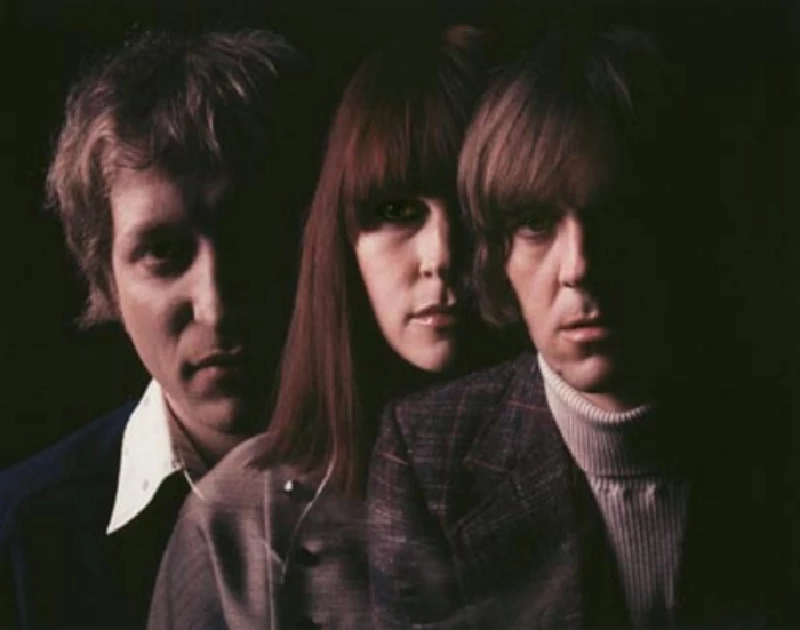
intro
One of London’s most original sounding bands, electro folk act the Shortwave Set use home made instruments and have recently toured with Goldfrapp. Sarah Johnson talks to Andrew Pettitt about the band's debut album, 'The Debt Collection'
In only two years the Shortwave Set has gone from three friends making a noise with broken instruments in a one bedroom flat to being one of London’s most original sounding bands. Playing sell out shows across London has become ritual to the band and now they are embarking on a national tour stretching to Glasgow. Andrew Petitt, Ulrike Bjorsne and David Farrell have combined their eclectic influences, home made instruments found in junk shops, and samples found on charity store records to create jaunty electro folk with flashes of the psychedelic and Victorian funk. Watching the band live is like stepping in to a time warp. sporting 60's haircuts and all with their own retro clad wardrobes they share the stage with grammar phone mounted decks and other strange musical contraptions. As you can imagine the music sounds creamy, thick and full; a delicious mix of acoustic and electro melodies with sweeping boy/girl lyrics. Their debut album, 'The Debt Collection', has received stunning reviews and the video for their latest single, ‘Repeat To Fade’ can be downloaded all over the web including the T4 website. PB : When you play gigs you set up tombola stalls and have a raffle. Where did that idea come from and does it go down well with the crowd? AP : We did that when we released the album, so that we did a bit more than just a gig to promote it. Now we are doing a run of nights, every other Monday for eight weeks. The idea is it’s like a whole night out. When you come in you get a ticket for the raffle; all the prizes are crap, second hand records that we don’t want. We sign them and raffle them off, black magic chocolates and stuff like that. Once we gave away the test pressing of our next single, so the person that won the test pressing had to phone up the record company the next day to approve it. That’s what they do with vinyl records. They send you a test press you have to play it and say "that’s ok, you can manufacture it now." So we raffled off the approval of our record. If somebody with cloth ears won, our next single will probably sound rubbish because they would have approved it even if it wasn’t up to scratch. Hopefully that wont be the case. But people really got into it. It was good fun. We get as big a cheer for the tombola as we do for playing the songs. We’ve got a compere for the evening. He’s called Des O Connor, and that’s his real name. It causes some raised eyebrows but it is genuinely his real name. So he comes on and introduces the tom bola, and does a few of his own numbers. We have this thing called the ten a penny DJ set. Everyone has to bring a record from a charity shop that they have bought for about 50p or something, and then we do a DJ set based around all the records. All of the records then go up as one of the prizes for the tombola. You can win all of the records but that’s only for people with a car because it would be a nightmare to get them home. All in all we are just trying to take it away from bands in pubs doing sweaty rock gigs and make it a bit more of the variety club tip. Get people involved, give them something they can interact with, and it kind of sets you apart from these hair brush and tennis racket bands that are all the rage at the moment. PB : What kind of records come out of the two a penny DJ set ? Are there any good ones? AP : well sometimes we get some good songs, collections of classic Beatles hits played by the national Cuba orchestra, just very odd records. I don’t know if you’ve ever looked at the records in charity shops. There’s some odd things you can find there as well as some very naff and rubbish stuff, like Brother Beyond 12” singles from 1989 or whenever it was. But then you get some good stuff as well. People bring in a lot of foreign records, a lot of Czechoslovakian folk music and Spanish disco music. You do get some quite interesting stuff. It’s just a good idea I think to DJ stuff almost because you like the look of it and to see what it sounds like afterwards, rather than pouring over beat match records, making sure sets are absolutely perfect. There’s something quite exciting about playing records you have never heard before. You never know what’s going to come out of it. It could be terrible, but often there’s some quite good stuff that comes out as well. PB : On stage there is a really strong chemistry between you all. How long have you known each other? AP : We knew each other before we were a band, so we’ve know each other for about four or five years. Obviously Ulrike is Swedish. She had been over here for a little while before we all bumped into each other. I think the key to it is that we were all close friends before we started the band, and starting the band kind of happened by accident. We just started making songs and music to entertain ourselves. We kind of realised afterwards that it was quite good and other people that heard it said we should do something with it. So it happened by accident in that respect, but if you know people well and you can say anything and not worry that they will be offended or you can joke around with them it helps you to be relaxed. Maybe that comes across on stage. We’ve had our moments though, especially me and Ulrike. We’ve nearly come to blows on stage, I hesitate to say, she has nearly hit me, not the other way around. So you have your moments, but I suppose anyone does in any line of work. Generally speaking we do all get along really well. We all met in London. Ulrike had been over here for a while and Dave and I both lived in London. We used to go to the same places and we had mutual friends. We were all kind of gig goers, but really cynical gig goers. We’d be the sort of people that would go to the gig and just stand there tutting about what a load of old shit it was. Regardless of who we were watching, we’d find something bad to say about them. I think it was that kind of attitude that made us think, and other people would say to us, well if it’s that bad why don’t you go and do something better. The obvious thing to say really, but we did have a try in the end. We all think reasonably similarly about music and that helped when we started doing the band. PB : You got a huge response from the new album. How does that feel to have gained success so quickly? AP : Its always nice when people say nice things about you, but the best thing for us to be honest is when people come up to you and say I heard you record and I really like it. That means a lot. When you do gigs and people come up to you with their own stories and ideas about what they make of it all, that’s the fun part. Seeing yourself in a video on the TV is quite odd, and hearing yourself on the radio, but bizarrely enough, once you’ve heard yourself on the radio or seen yourself on the TV once it doesn’t shock you anymore. It’s really wired how you can become accustomed to it. I think if you became hugely successful then maybe it would start getting freaky again. If you got to the point when you couldn’t walk down the street without people knowing who you were then that would be a bit odd. But fortunately we are not in that position. We’ve got a nice level of recognition without any of the uncomfortable extras that come once you get a bit more successful. Maybe that will happen at some point, I really don’t know, but that would be a mighty pain in the arse to have people waiting for you outside every time you step out the front door. What a nightmare, we are quite happy where we are, although we would like to sell more records and become more widely known, for our music to spread around the country, even the world, you know. We are ambitious in that regard. PB : You supported Goldfrapp last year. How did that come about? AP : Well we have a booking agent that deals with our live appearances. Our CD got sent to Goldfrapp and they seemed to like it for whatever reason. We ended up having the pleasure of touring round the country with them, which was great, and the kind of fans they were attracting were very attentive so it give us a good chance to show what we could do. Also the amount of records we managed to sell just off the back of that tour was great, so that was brilliant, and a really brilliant experience. We got to play the Brixton Academy in London, places that I’d only ever been too to watch bands before, so to play there was kind of crazy. PB : Where do your musical influences come from and what does each individual bring to the band? AP : Our influences are very varied within the band. Dave, who operates the record deck, comes from a very sampled music background and electronic sensibility in terms of what he likes and listens to. Whereas I write songs on a guitar, I think you can hear that combination of song writing and sampling in our sound. Then Ulrike has got a very wide taste. She likes 1960's folk and very European aesthetic like Françoise Hardy and singers of that kind of era; 60's girl singers and stuff. But sometimes when songs take on certain moods and flavours it can be simply that we find a nice oriental loop, for example, like on ‘In Your Room’. We just found a nice loop on this Chinese record and that automatically lends the whole song that kind of mood. Then we write the melodies and guitar parts and vocals on top of that. We’d almost describe our music as like a collage, all different things stuck together which hopefully, when everything else is stuck on it, is something else again. PB : What current music are you into? AP : I do like the lyrical abilities of the Arctic Monkeys, although I would temper that by saying yet another four piece indie band is the last thing the world needs. That’s more of a comment on how it is presented rather than a comment on the actual ideas, which I think are genuinely great. The kind of colloquial way that it is expressed is very real. A really arresting quality. You glue yourself to it because the songs have this interesting narrative, but in terms of how its presented it’s just a bit old for me. Why do what has already been done ? We all really like the Gorillaz album, because it’s an example of something that’s really popular and accessible; a four year old can sing along to those songs, but also a more kind of hard edged cynical music journalist can see worth in it. It has both a popular appeal and a critical appeal because it’s so cleverly put together. PB : Was there one particular song or band that got you into music when you were younger? AP : On a personal level, as cliché as it is, its my Mum and Dad's Beatles records. That’s the thing that accompanied me as I was growing up. On a Sunday afternoon when my mum would put her Beatles records on, because you hear them from such a young age you don’t really appreciate how good they are, they are just part of the background of your childhood. Then you get a bit older and actually study them and you realise what good records they are. I think my teenage hormonal group was the Smiths. They are not really revolutionary in terms of how they sound, but to have this band that musically kind of sound like the Byrds with Oscar Wilde singing over the top, it’s a peculiar idea, and to see Morrissey prancing around on Top of the Pops. It’s a classic thing when your Mum would say "who the hell is that and what is he doing ?" That helps you to kind of adopt them as this kind of rebellious thing that your parents don’t understand or particularly like. So if anything made me think, briefly that I wanted to be in a band it would probably be the Smiths. Then later on Beck’s ‘Odelay’ was an influential record for us and the Beta Band. PB : What prompted you to go out and find old broken instruments to make your music? AP : It kind off ties in with the charity shop kind of idea. We were thinking about how in popular music the accepted kind of reference points are very narrow, or they have become very narrow. You are either influenced by the 60's or the 70's, then the next band comes along and they are influenced by the 60's. Then the next band is a bit different and they are influenced by the late 70's. Everything just seems to have such narrow points of reference. There’s a lot of stuff out there is are discarded by society, rubbish that nobody wants, so it's kind of like musical recycling. We took all of the things that got thrown away, things that every one just decided were uncool and we thought we’d have a stab at making them cool. I think there are more textures to be investigated rather than just the four piece rock and roll band which has obviously been hammered to death over the course of the last 50 years. We just thought it would be interesting to throw in some textures that people at least hadn’t heard in quite a while. That was the idea basically, we just wanted to do something different. PB : Can you remember the first instrument or part of an instrument you bought? AP : I’ve got a zither, an old zither harp. A zither is like, well it has loads of strings on it, imagine a harp but it’s kind of mounted on a big piece of wood with a whole in the middle a bit like a guitar. That was the first piece of junk we had and we recorded that on a few songs. It sounded really nice, and that kind of set us off on the hunt for more and more unusual stuff. We’ve got this other thing. It’s like a big drum and there’s a metal cable hanging off the bottom. You shake it and the movement of the mental cable kind of resonates inside and makes this massive sound like thunder. That’s a favourite piece that we use for atmospheric tracks. The omnichord, which is a kidney shaped keyboard, is quite a rare old electronic instrument. It’s a bit temperamental actually. When we play gigs if the temperature is too hot it won't work, so before we play we have to work out if the temperature is suitable for certain songs. If we can’t use the omnichord they tend to sound a bit flat without it so we stand around with a thermometer and think can we do this song tonight or not. That’s the problem with old stuff. It can be quite unreliable, but it makes our gigs quite interesting, quite erratic. Someone said watching us play was like watching a pensioner on an icy road. You're never quite sure if they are going to fall over or not. But I suppose that kind of adds an element of excitement all of its own. PB: Thank you
Picture Gallery:-
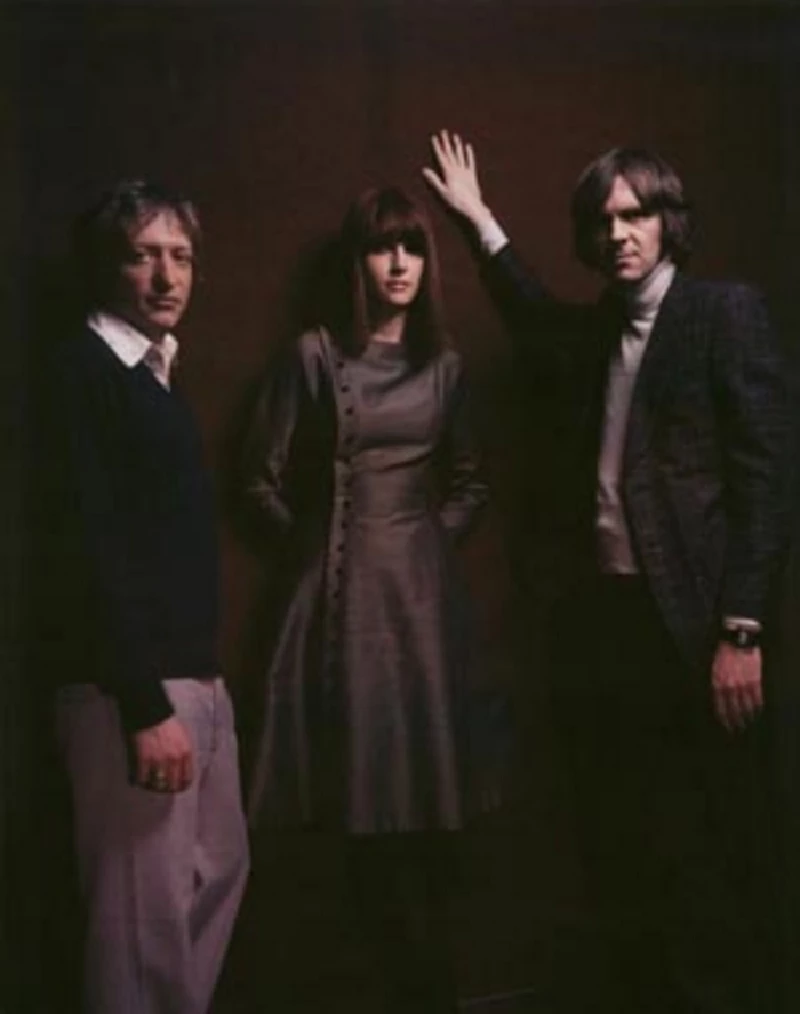
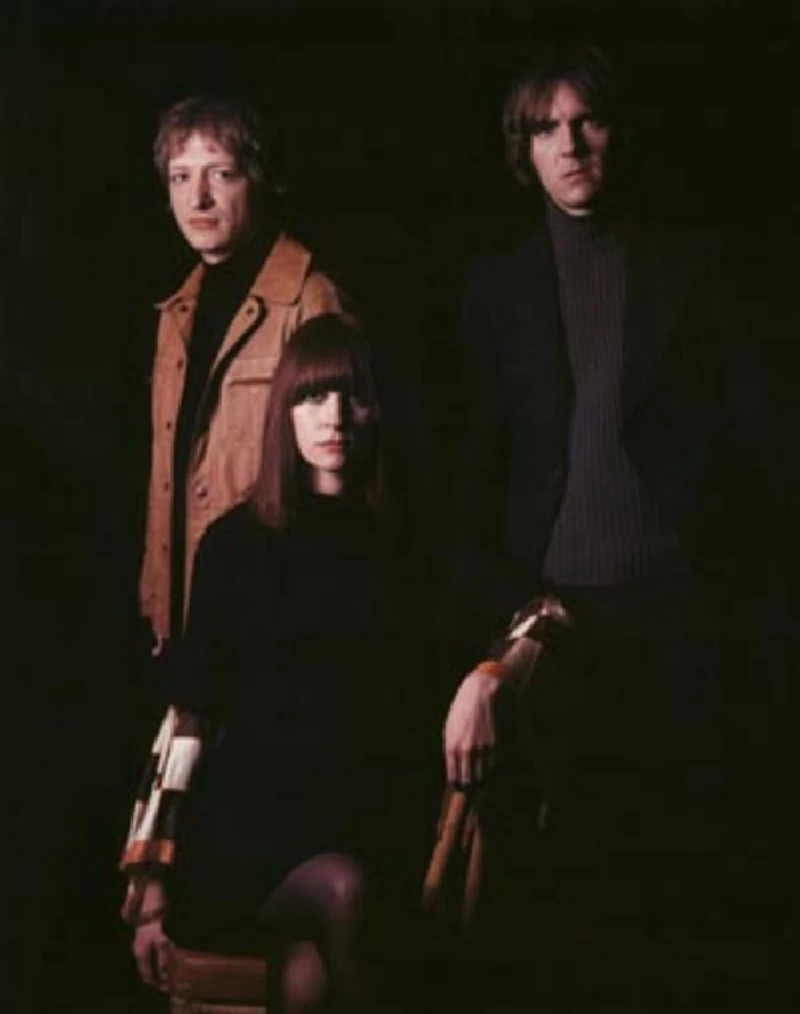
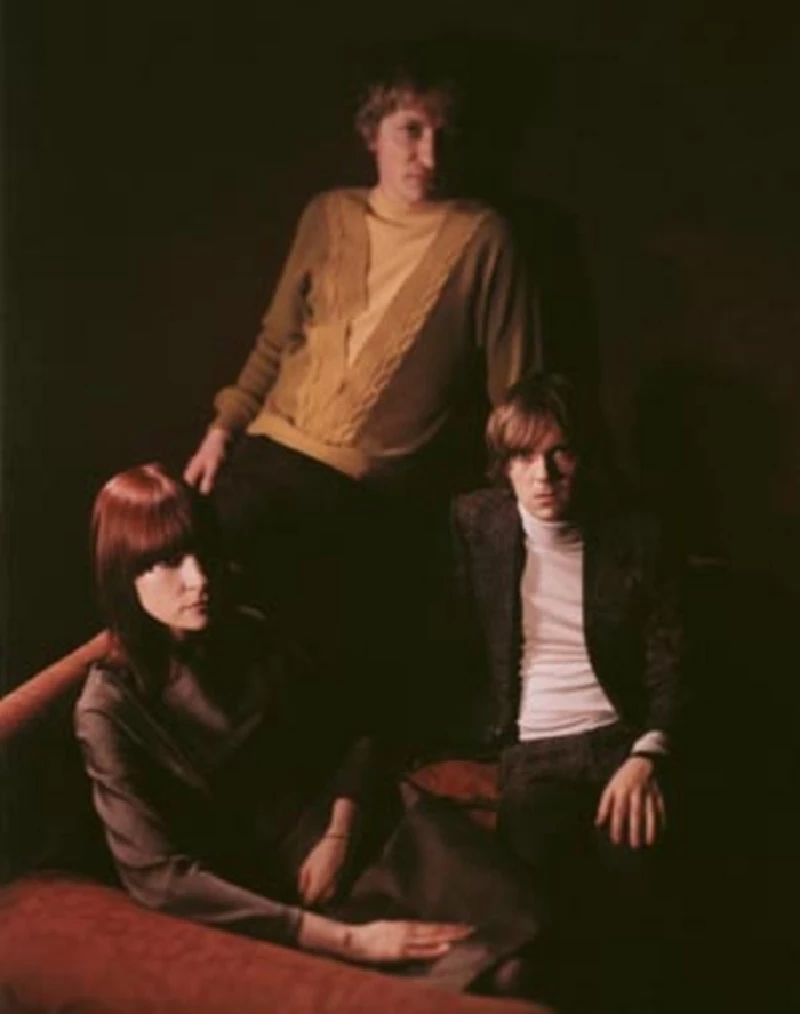
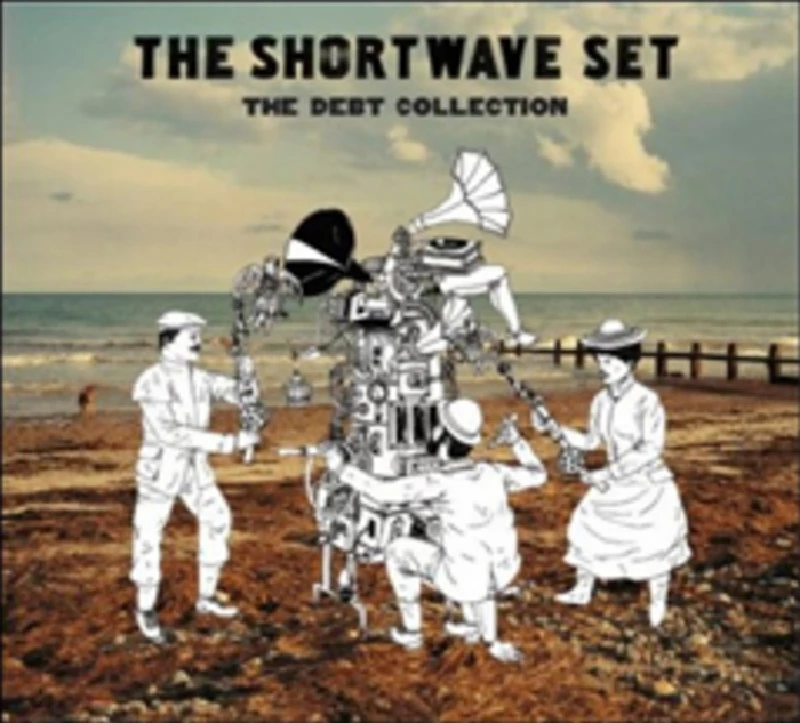
most viewed articles
current edition
Carl Ewens - David Bowie 1964 to 1982 On Track: Every Album, Every SongArmory Show - Interview with Richard Jobson
Colin Blunstone - Thalia Hall, Chicago, 16/7/2025
John McKay - Interview
Bathers - Photoscapes 1
Visor Fest - Valencia, Spain, 26/9/2025...27/9/2025
Billie Eilish - O2 Arena, London, 10/7/2025
Robert Forster - Interview
Loft - Interview
Sir Tim Rice - Interview
previous editions
Manic Street Preachers - (Gig of a Lifetime) Millennium Stadium, Cardiff, December 1999Heavenly - P.U.N.K. Girl EP
Beautiful South - Ten Songs That Made Me Love...
Oasis - Oasis, Earl's Court, London, 1995
Trudie Myerscough-Harris - Interview
Prolapse - Interview
Pixies - Ten Songs That Made Me Love...
Coldplay - Wembley Arena. London, 16/8/2022
Boomtown Rats - Ten Songs That Made Me Love....
Peter Perrett - In Dreams Begin Responsibilities Interview Part One
most viewed reviews
current edition
Davey Woodward - Mumbo in the JumboSick Man of Europe - The Sick Man of Europe
Amy Macdonald - Is This What You've Been Waiting For?
Phew, Erika Kobayashi,, Dieter Moebius - Radium Girls
Lucy Spraggan - Other Sides of the Moon
Bush - I Beat Loneliness
Alice Cooper - The Revenge of Alice Cooper
Suzanne Vega - Flying With Angels
Cynthia Erivo - I Forgive You
Blueboy - 2
Pennyblackmusic Regular Contributors
Adrian Janes
Amanda J. Window
Andrew Twambley
Anthony Dhanendran
Benjamin Howarth
Cila Warncke
Daniel Cressey
Darren Aston
Dastardly
Dave Goodwin
Denzil Watson
Dominic B. Simpson
Eoghan Lyng
Fiona Hutchings
Harry Sherriff
Helen Tipping
Jamie Rowland
John Clarkson
Julie Cruickshank
Kimberly Bright
Lisa Torem
Maarten Schiethart